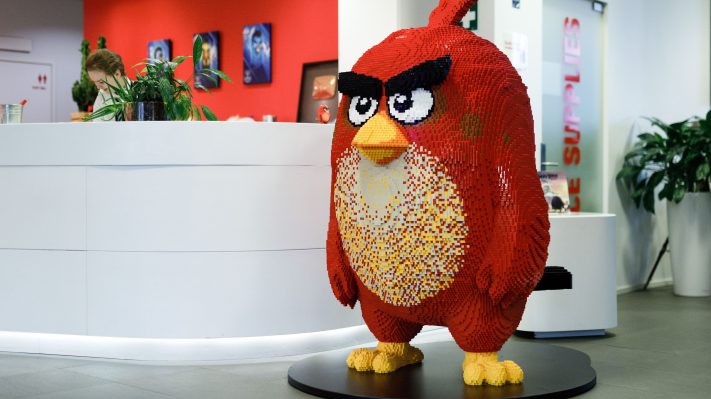Japanese gaming giant Sega has confirmed that it’s buying Finland’s Rovio in an all-cash deal worth €706 million ($775 million).
News first emerged back in January that Israeli mobile gaming company Playtika had tabled a €750 million ($810 million) bid for Rovio, though talks collapsed last month with no reasons provided by either company. Rovio did, however, confirm that it was still in talks with other parties, with rumors emerging over the weekend that Sonic the Hedgehog-maker Sega was in the mix.
Now, the deal is official, with Rovio noting that it expects the deal to close in Q2 of its current fiscal year, meaning some time in the next couple of months — subject to “certain customary conditions.”
Sega’s offer represents a 63.1% premium on Rovio’s closing price on January 19, the last trading date before reports first emerged of a potential acquisition, and a 19% premium on Rovio’s final closing price on Friday, April 14.
The Angry Birds company
Founded in 2003, Rovio emerged as one of the major success stories from the European technology sphere. While the company had produced dozens of games before the arrival of Android and iOS, it was the burgeoning smartphone revolution that catapulted Rovio into the mainstream consciousness, with Angry Birds becoming a global hit and franchise spanning everything from toys and cookbooks to movies and a TV show.
Rovio went public in 2017, hitting the Nasdaq Helsinki to a somewhat lukewarm reception and a $1 billion valuation. In the intervening years, the company’s shares have been mostly in decline, generally sitting at around half of their IPO value. So it perhaps was little surprise that Rovio had started shopping itself around to potential suitors.
With Rovio under its wing, Sega says it plans to “accelerate the development” of its own existing games, as well as “generate synergies” between Sega and Rovio’s brands. Specifically, it seems that Rovio’s experience in so-called “live service” mobile gaming is what appealed to Sega, which refers games designed to be played more or less indefinitely through regular content updates to keep players interested. Moreover, Sega said that Rovio’s expertise can help it expand Sega’s current and new games in more markets, particularly in Europe and North America.
On the flip-side, Sega said that it will use its cross-platform expertise to enable Rovio to expand beyond mobile gaming, which presumably means to consoles and/or web browsers.
So this deal effectively allows Sega to enhance its mobile gaming presence while simultaneously allowing Rovio to move in the other direction.
“Among the rapidly growing global gaming market, the mobile gaming market has especially high potential, and it has been SEGA’s long-term goal to accelerate its expansion in this field,” said Haruki Satomi, president and group CEO of Sega’s parent company Sega Sammy Holdings, in a press release. “I am confident that, through combination of both companies’ brands, characters, fanbase, as well as corporate culture and functionality, there will be significant synergies created going forward.”
